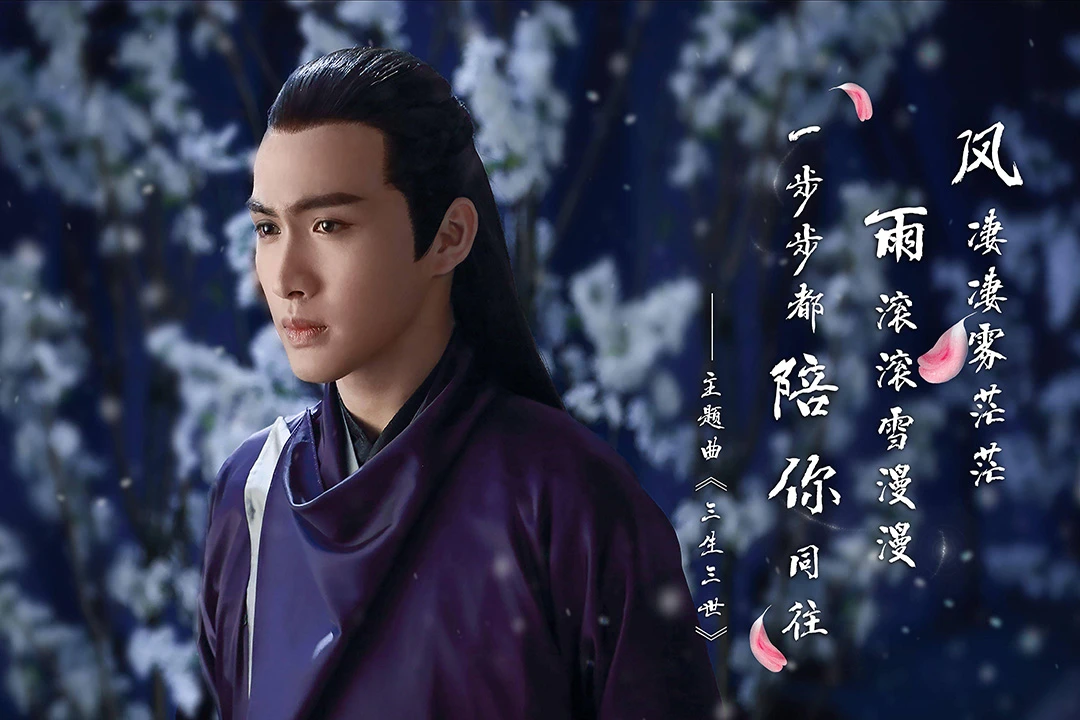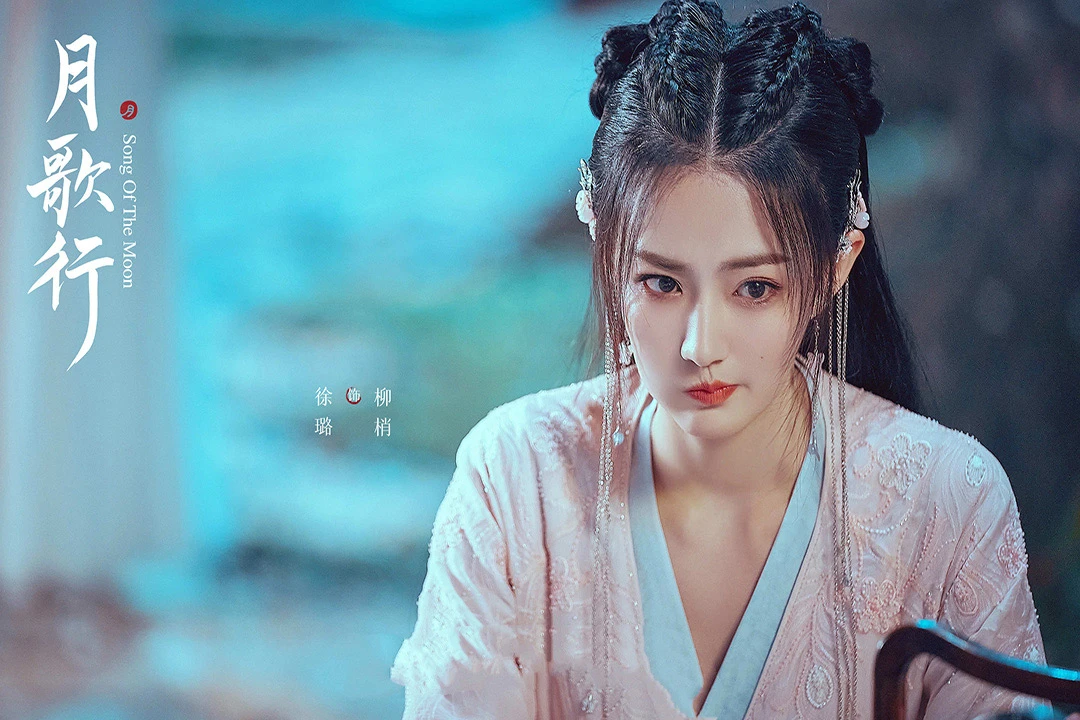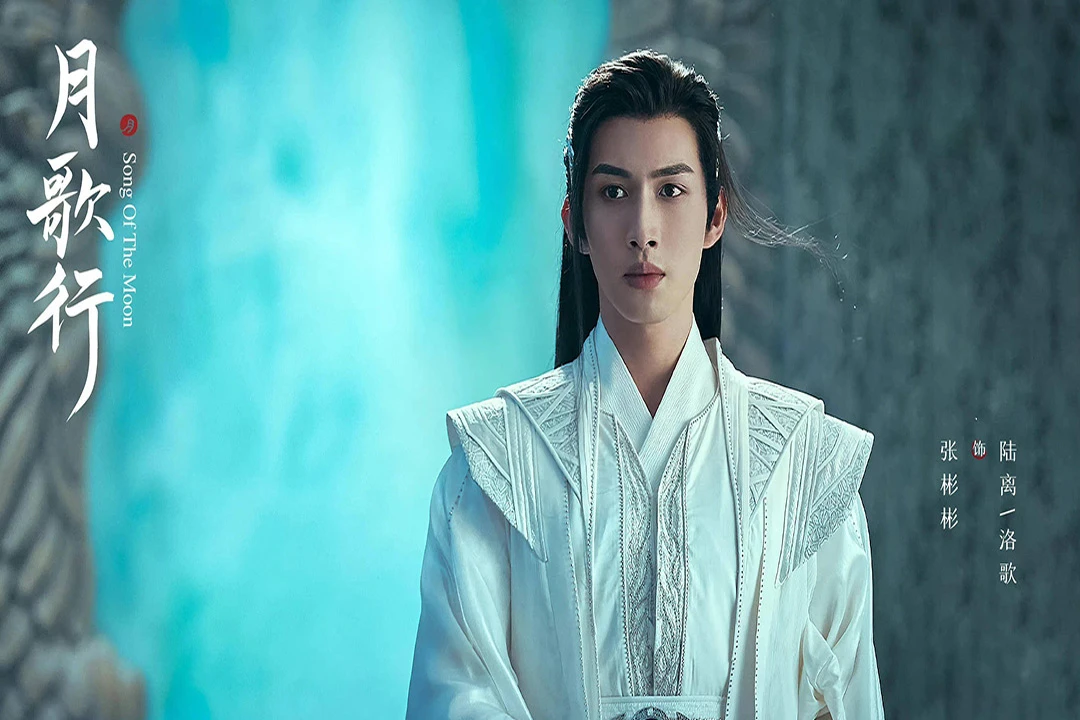The fantasy drama “The Moon’s Serenade,” starring Zhang Binbin and Xu Lu, has captivated audiences with its powerful portrayal of heroism and the indomitable spirit of the Chinese people. Adapted from the novel “Rushing to the Moon” by Shu Ke, the drama tells the story of Liu Shao, who trades her life’s destiny for three days of joy with a mysterious man, embarking on a journey filled with trials and tribulations. While the drama is set in a fantasy world, it is the ordinary people and their extraordinary deeds that take center stage, showcasing the awe-inspiring righteousness and national spirit that lies behind the romance.
The plot is the key to the success of “The Moon’s Serenade,” setting it apart from many other dramas. Instead of focusing on the love and entanglements between immortals, demons, and gods, the drama uses the fantasy setting as a medium, a mirror, to reflect how ordinary people break through their limitations, protect each other, and safeguard the common people. Despite facing repeated tricks of fate and betrayals from those around them, the protagonists never give up on themselves, instead redeeming each other and growing together. They put aside their “small love” for the sake of the “great love” of the world. The drama is not about who becomes whose hero, but about protecting the world together. Liu Shao and Lu Li make each other better and become stronger versions of themselves.
In the past, fantasy dramas like “The Legend of Sword and Fairy” revolved around righteousness and the common people, even though the romance between the male and female leads was heart-wrenching. However, in recent years, as many fantasy dramas have become popular, the plots and clichéd storylines have been the subject of much controversy. Some dramas design twists and turns to highlight the tragic love between the male and female leads across lifetimes, while others intentionally portray love turning into hatred. Unlike previous fantasy dramas, “The Moon’s Serenade” breaks away from the style of tragedy for the sake of tragedy. Through unique plots and themes, it depicts a series of vivid and lifelike heroes, such as Liu Shao and Lu Li, who always hold righteousness in their hearts. The growth and transformation of the characters are also showcased to the fullest in the drama. This may be the core that supports the entire drama—the spirit of chivalry, the fearless spirit of an ant shaking a tree.
Picasso said, “Art is a lie that makes us realize the truth.” This statement is profound, and “The Moon’s Serenade” uses the artistic imagination of fantasy to lead the audience to see real life and the extraordinary chivalry and national righteousness in ordinary people. The fantasy setting fully showcases the extraordinary qualities of ordinary people in their “defiance of heaven.”
Xu Lu, who plays Liu Shao, said, “Liu Shao is the state that modern women aspire to.” Like the “fantasy” label of this drama, the female protagonist Liu Shao carries a sense of “chivalry” and always believes in the spirit of “my fate is in my own hands, not in heaven’s.” Unlike the weak and saintly image of many female protagonists in television dramas, Liu Shao embodies purity and courage. “Courage has strength, with its own personality and attitude,” director Lin Jianlong once described Liu Shao’s image. From choosing to trade her life’s destiny for three days of joy with a mysterious man at the beginning, to repeatedly falling into predicaments but always maintaining an attitude of goodness and beauty, she always adheres to her own personality and attitude. Although the environment she is in is fictional, the image she represents—brave and powerful—is the state that the vast majority of female viewers aspire to. This pursuit is constant and tenacious, regardless of time and place.
Actor Zhang Binbin plays three roles, including a powerful god, a frivolous ordinary person, and a character with vastly different abilities, but they all share the common goal of protecting the heavens. “With someone to protect behind you, even if you are an ant shaking a tree, you will never back down half a step.” Protecting the heavens may seem too distant for us in modern society, but the courage, perseverance, belief, and selfless national spirit behind it are timeless. In traditional stories, Nvwa patches up the sky, and Pangu creates the world; in history, Zhang Qian serves as an envoy to the Western Regions, and Wen Tianxiang keeps his loyal heart.
Although “The Moon’s Serenade” is a fantasy idol drama, the core of its character images comes from the unchanging national spirit and heroic sentiments, interpreting the extraordinary spirit of ordinary people. When we hear the defiant question, “What does it matter if we are ants?” it is hard not to think of the impassioned words of national heroes: “The rise and fall of the world is the responsibility of every man” and “If there is a way, please start from the same beginning.”
“No matter the outcome, I must try my best.” To protect the common people and their loved ones, Liu Shao and Lu Li endure hardships and tribulations, devoting their entire lives, regardless of their strength, to stand up and fight. “The Moon’s Serenade” focuses more on the “chivalry” in fantasy than the “immortality,” mainly depicting the growth and tempering of the protagonists, with the emotional storyline becoming a foil to highlight this theme. Exploring tiger caves and entering dragon palaces, looking up to the sky and exhaling, becoming a white rainbow. Cherish the passion in your heart, even if it is scattered, it can still turn into a jade-green wave. Tender feelings are like water, but they can also stir up emotions a thousand times over.
Named fantasy, it is actually a tribute to the extraordinary spirit of ordinary people! From the earliest “The Legend of Sword and Fairy” exploding the market for fantasy dramas, to the hugely popular IPs “Swords of Legends,” “Eternal Love,” and others continuing to add to the genre, the heroic sentiments and the righteousness of the protagonists have become essential elements. Now, “The Moon’s Serenade” continues this sentiment of “the greatest chivalry is for the country and the people.” In fact, in our cultural genes, heroic chivalry and national righteousness have always been closely linked.
The loyalty of the jianghu ultimately needs to be presented against the backdrop of national peril, eliminating the wicked and bringing peace to the good, protecting the country and loving the people, sacrificing one’s life for a righteous cause, in order to show its lofty righteousness. Caring not only about one’s own destiny but also about the destiny of the common people, and believing that it will ultimately be related to one’s own destiny—this is the righteousness that runs through “The Moon’s Serenade.” Fantasy is not “suddenly hearing of immortal mountains in the sea, floating in the void,” but rather “the hero’s anger, the heroic spirit, wishing for a heaven-cleaving sword to cross the sea and slay the giant whale”! Fearing neither heaven nor earth, this kind of heroic spirit is also an indispensable value element of our national spirit.
“The Moon’s Serenade” is more than just a fantasy drama; it is a powerful reminder of the enduring spirit of the Chinese people. Through its vivid portrayal of ordinary individuals rising to extraordinary heights, the drama celebrates the timeless values of courage, perseverance, and selflessness that have shaped the Chinese nation throughout history. By interweaving elements of fantasy with the realities of the human experience, “The Moon’s Serenade” creates a compelling narrative that resonates with audiences on a deep, emotional level, inspiring them to embrace their own inner strength and to strive for the greater good.
As the drama continues to captivate viewers, it serves as a testament to the enduring power of storytelling to illuminate the human condition and to inspire us to be our best selves. Through the trials and triumphs of its characters, “The Moon’s Serenade” reminds us that even in the face of seemingly insurmountable obstacles, the indomitable spirit of the Chinese people will always prevail, guiding us towards a brighter, more hopeful future.



